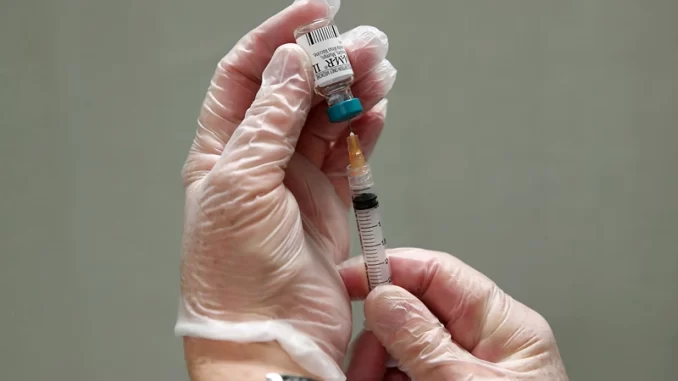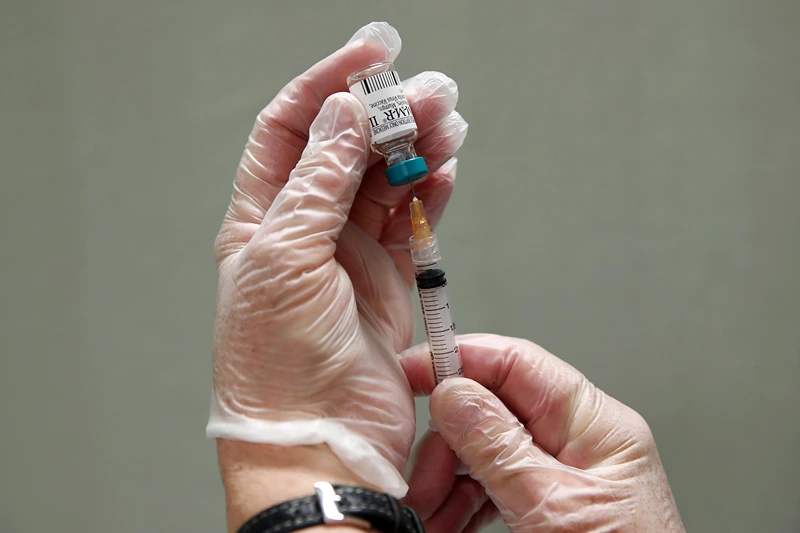

OAN’s Abril Elfi
1:38 PM – Tuesday, December 26, 2023
Moderna and Merck have announced a vaccine that shows promising results for treating the deadliest form of skin cancer.
Advertisement
This month, Moderna announced that their new vaccine had been showing promising results in the clinical trial.
According to a statement from Hackensack Meridian John Theurer Cancer Center in New Jersey, the vaccine has led to “statistically significant improvement in survival before the cancer returned,” after being given to 157 patients with advanced melanoma.
The vaccine in the study uses an immunotherapy drug named Keytruda.
Doctor Marc Siegel, a clinical professor of medicine at NYU Langone Medical Center, stated that this could be a game changer.
“Keytruda is a checkpoint inhibitor, meaning it blocks an enzyme that the cancer cell uses to become invisible to the immune system,” Dr. Marc Siegel said. “Keytruda works well in certain kinds of highly mutagenic cancers, including melanoma, and there is often a very effective response, but the cancer can then mutate away from the impact of the drug and once again become resistant to an immune response.”
According to the companies, there was a 44% decrease in the chance of death or recurrent disease among the patients who received the experimental mRNA vaccine in addition to Keytruda. These patients had all undergone surgery to remove their cancer.
Doctor Andrew Pecora, an oncologist and researcher at the Hackensack Meridian John Theurer Cancer Center, who has been involved in the clinical trials since they began, stated that the Immunotherapy has been shown to be effective in about half of cancer patients. However, for the other half, the proteins of the tumor are not properly presented to the immune system to be recognized and killed.
The vaccine is personalized to each patient’s tumor, in which the scientist takes a part of the person’s tumor and determines what part of DNA is being mutilated so they can target those changed pieces.
No side effects from the participants have been reported and the vaccine is now entering phase three of the trials.
According to the Melanoma Research Foundation, in 2023, nearly 187,000 Americans were expected to be diagnosed with melanoma and 7,990 Americans are expected to die from it.
Stay informed! Receive breaking news blasts directly to your inbox for free. Subscribe here. https://www.oann.com/alerts
